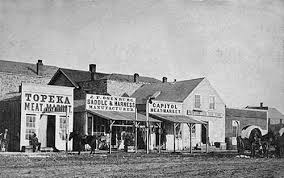Ben Lerner’s The Tople School makes you despair a little about parenting. You wonder if anyone can ever get it quite right, if you can ever satisfiedly pat yourself on the back and say, “Well done, old gal!” The answer is NO because — according to The Topeka School at least, I think — because you CAN’T get it right. Why?
Because Daddy. Yes, I get that very strongly from this novel about “the lost boys of privilege” — as most of the younger characters and one protagonist in the novel are called — are criss-crossed, hardwired and haunted by the fantastic presence of impossible Great Fathers and the Janus-faced Law of that Father. In the lower ranks, down the lines of generations of fathers and sons, there is of course constant ongoing insurgency by sons — especially psychologists — who push their faces into their fathers’ and then become versions of those fathers.
Very nice. Very Freudian. Mothers are there too, but no similar distant ancient matriarchal lineage extending back to history’s vanishing point. Though there are disturbing allusions to the Great Father intruding upon the innermost, verboten recesses of the novel’s women characters as well.
Still, in spite of Daddy, if there is any comfort in a book about how generations of always slightly betrayed men and women try and try and try and only barely break through to understanding their children, leave alone helping or rescuing them, it is in the undergirding theme that while some things do go very wrong — and usually in these cases the real reasons are damaged cross-wiring of class, race, mental health, etc., as well — mostly kids do figure it out, do keep working things through, despite some concussions and lots of scars. As my best friend likes to put it, in the end “nobody dies.”
As the single mother of an eighteen-year-old American boy, I’m going with that.
Go read Ben Lerner’s The Topeka School about pschyanalsysts and parents re-framing and re-staging their own catharses in their young ones. For its magical use of language as a code to decrypt the true nature of power and negotiation in a Hobbesian patriarchy where life threatens always to be “solitary, poor, nasty, brutish and short” but for the equally disturbing, always looming shadow of the Great Father; for its delicious snaps at history and politics and the history of politics; for its recognition that the remembrance of times past is also the sociology of memory; for its insane insight into the hurbis and good intentions of Lacanian psychology trying to overthrow the tyranny of the Great Father Freud;and for its compassion for “lost boys” and their lost parents.

Leave a comment